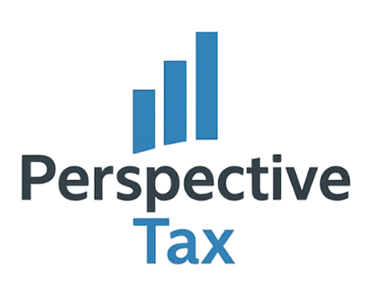IRS Inflation Adjustments for 2025
Inflation can show up at the pump or supermarket—but it also affects your taxes.
T. Brown
8/2/20255 min read


Inflation can show up at the pump or supermarket—but it also affects your taxes. When prices rise but tax policy doesn't change, you might be left with a bigger tax bill even if your buying power hasn't actually risen. That's why the IRS sets many dollar amounts in the tax code to change each year. These are cost-of-living adjustments, and they're set to keep you level so that a small cost-of-living increase doesn't push you into a higher tax bracket or prevent you from receiving a credit. For 2025, the IRS published a new set of adjustments impacting commuters, families with kids, Americans abroad, and families saving for the long term. They're not new policies but new numbers—think of them as readjusting the yard lines so the field doesn't change size when prices do. Simply put: these adjustments prevent tax increases from creeping in and can put real money back in your pocket if you play along.
What Changed for 2025
Some headline figures most taxpayers will actually see in their daily lives. Use these to sanity-check your paycheck, benefits, or yearend plan.
Foreign Earned Income Exclusion (for qualifying Americans living abroad): $130,000.
Earned Income Tax Credit (maximum for households with three or more qualifying children): slightly more than $7,600.
Transportation fringe benefits (pre-tax commuter/passes or parking): $315 monthly.
Health Flexible Spending Accounts (FSA): yearly contribution limit increased modestly.
Estate & Gift Tax lifetime exemption: $13.99 million per person
Had the IRS not adjusted these amounts, something called "bracket creep" would occur—your income goes up a bit, you're in a higher bracket, and you pay more tax even though your own level of living hasn't increased. Indexing avoids that.
Real‑World Examples
The Commuter: Sarah spends $315 monthly on a subway pass. Because the pre-tax mass transit cap is $315/month in 2025, she can deduct $3,780 in income and payroll taxes. If she's in the 22% tax bracket, that alone saves her about $830 on federal income tax, and she can also save somewhat on Social Security/Medicare withholding where applicable.
The Family with Children: John and Maria work diligently and have three under-12 children. With the higher maximum of EITC for larger families, they can get a refund of more than $7,600 if they qualify. That is cash that can be used for rent, child care, or building an emergency fund.
The Expat Engineer: Mark moved to Germany for a three‑year stint and earns $140,000. As a result of the $130,000 foreign earned income exclusion, he is taxed only on $10,000 of his income under U.S. income tax (housings exclusions or foreign tax credits excluded), saving him thousands over past years.
Pros and Cons
Pros:
Protects you from "hidden" tax increases solely based on inflation.
Gives real‑life savings to commuters, working families, and expatriates.
Reserves long‑term planning (such as estate transfers) aligned with today's values, not yesterday's.
Drawbacks:
The increases are minimal—housing, food, and health care will probably rise faster than these IRS adjustments.
Some provisions (such as the EITC) possess confusing eligibility rules and phase‑outs that are obtuse without explanation.
Large banner provisions (such as the lifetime estate exemption) mostly favor higher‑net‑worth families.
Planning Tips (and Potholes to Avoid)
Pay out your commuter elections: If you're paying cash for parking or transportation, get HR to boost your pre-tax election to the 2025 amounts. Don't leave that money idle.
Check your FSA: Health FSAs are "use-it-or-lose-it." In case the limit increased and you've got continuing expenses—prescriptions, co-pays, therapy, dental/vision—consider increasing your contribution so those dollars are tax-free.
Check EITC eligibility ahead of time: If family size or income went up, use the IRS EITC Assistant (or a tax professional) to estimate 2025 credit. A minor increase in earned income might clip the credit occasionally; planning ahead spares you the shock.
Expats: Harmonize the foreign earned income exclusion with foreign tax credits and housing exclusions; the sum, when properly calculated, usually provides the best result.
Staying back on check‑up: Inflation adjustments have minimal impact on your estimated tax. Use the IRS Withholding Estimator so you won't be sticker-shocked at filing time.
Key Takeaway:
Inflation updates are sneaky but potent: They prevent bracket creep and can save you hundreds or even thousands of dollars if you bring your benefits, credits, and withholding up to 2025 levels.
Opinion: Do Inflation Adjustments Really Protect Taxpayers?
Each year, the IRS quietly releases a set of inflation adjustments. For 2025, those adjustments raise limits like the foreign earned income exclusion, the Earned Income Tax Credit maximum, and commuter benefits. On paper, this seems like the system working as intended—tax thresholds rise in step with costs so families don’t pay more tax simply because of inflation. But here’s my opinion: these adjustments are far too modest to truly shield most households from today’s inflation reality.
Consider housing. Rents in many metro areas have climbed by 8–10% annually in recent years, while IRS adjustments might raise a benefit by just 3%. That math doesn’t add up for working families. Inflation indexing is useful, but it’s a lagging tool—it reacts to inflation after the fact, and it often underestimates what families are feeling in real time.
The other issue is visibility. Very few Americans know these adjustments even exist. Ask a commuter if their monthly transit exclusion went up, and most will shrug. The IRS does little to educate the public about how to take advantage of these shifts. An adjustment that saves you $400 only works if you know to adjust your pre-tax payroll elections. Without education, the policy’s value is muted.
At the same time, I don’t want to downplay the fairness these rules preserve. Imagine if Congress froze thresholds entirely. In just a few years, almost every family would drift into higher brackets and lose credits simply due to inflation. Indexing prevents that stealth tax hike. It’s not generous relief—it’s a guardrail against unfairness.
Where I think reform is needed is in making these adjustments proactive and automatic in taxpayers’ lives. Why not push notices through payroll systems or tax software so families are prompted to update their elections? Why not tie benefits like the Earned Income Tax Credit to more realistic measures of cost of living rather than an abstract inflation index? We can do better than passive annual tables buried on an IRS website.
In conclusion, inflation adjustments are necessary, but not sufficient. They keep the system honest, but they won’t close the widening gap between what families earn and what they spend. If policymakers are serious about protecting taxpayers from inflation, they’ll need to go beyond indexing and look at structural reforms to credits and deductions that reflect real household budgets today, not just national averages from last year.
Citation
IRS. “IRS Releases Tax Inflation Adjustments for Tax Year 2025.” Internal Revenue Service, Nov 2024. https://www.irs.gov/newsroom/irs-releases-tax-inflation-adjustments-for-tax-year-2025

